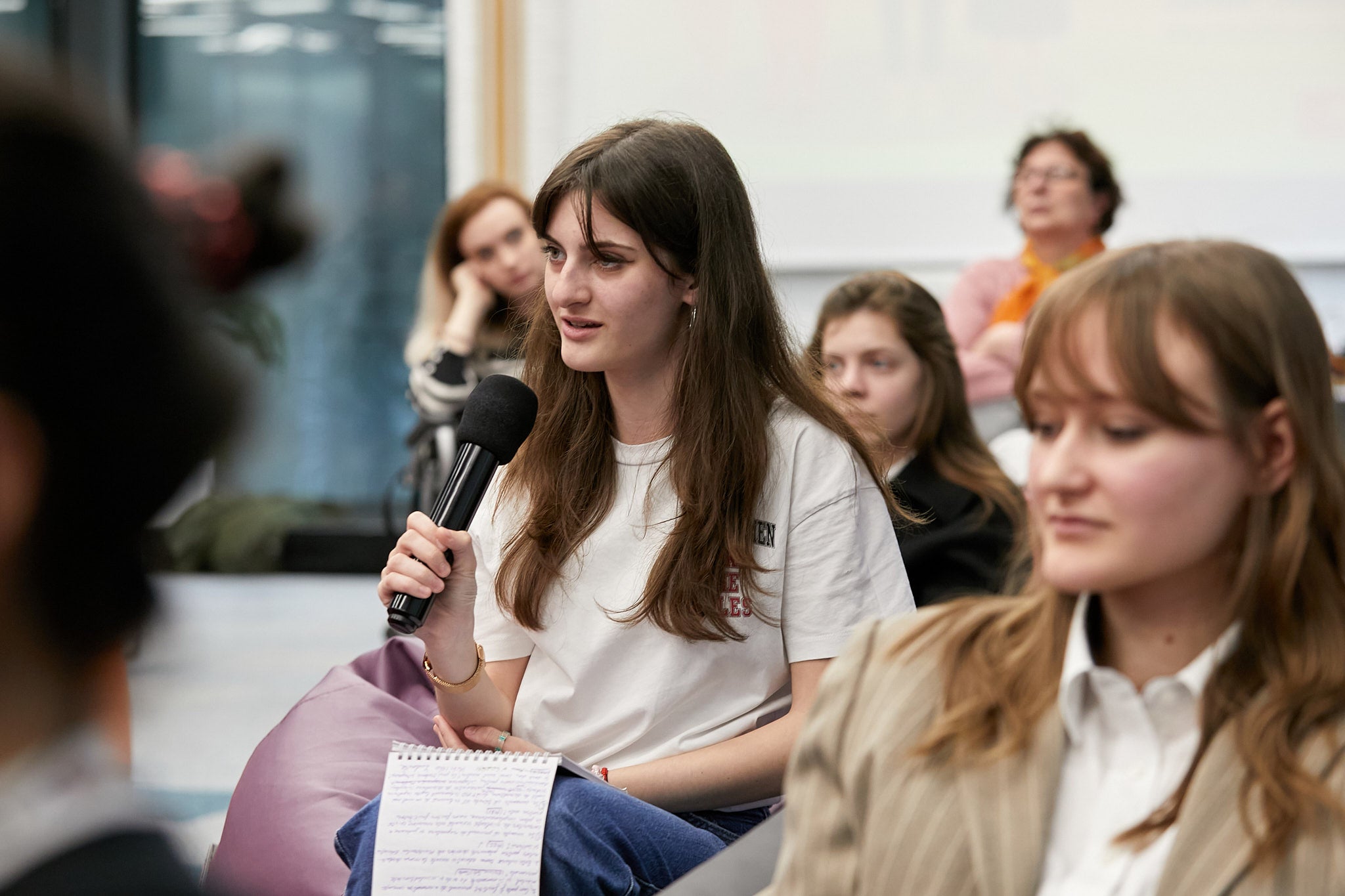Youth across the region call for intergenerational dialogue to break down gender stereotypes
Date:

As the 30th anniversary review of the Beijing Declaration and Platform for Action draws near, young and adolescent activists are raising their voices on crucial issues of gender equality, peace, inclusion, and technology-facilitated violence.
On June 7, 2024, a virtual dialogue brought together participants from Europe and Central Asia to discuss how youth can contribute to peacebuilding efforts, combat violence against women, and address stigma and stereotypes. This event, co-convened by UN Women and UNFPA Regional Offices for Europe and Central Asia, was part of a broader series of youth consultations leading up to the anniversary of the Beijing Declaration.
During the consultations the participants emphasized several crucial points to advance gender equality and combat violence against women:
- Promote education, community engagement, and youth leadership to foster peace and gender equality
- Implement inclusive approaches that amplify marginalized voices, address intersecting forms of discrimination, and challenge deep-rooted stigmas
- Emphasize the role of data and documentation in advocacy efforts
- Call for stronger policies to address technology-facilitated violence, harassment, and stereotypical representations in media.
Guncha Annageldiyeva, Y-Peer International Coordinator and member of the Preventive Diplomacy Academy of the United Nations Regional Centre for Preventive Diplomacy for Central Asia, stressed the importance of intersectionality and intergenerational approaches in activism. “While young people should be at the forefront of issues related to our health and conditions, without intergenerational dialogue and understanding, we cannot achieve our goals. We must work together to break down long-standing stereotypes and stigmas,” Annageldiyeva stated.
The impact of technology on gender-based violence and the perpetuation of stereotypes emerged as crucial topics during the discussions. Branislava Aradjan, Project and Youth Ambassadors Coordinator at Women Against Violence Europe (WAVE) Network, noted: "Now young women and girls who are more likely to use tech for learning, accessing different information and connecting to their peers also face increased exposure to online violence and harmful stereotypes that can reinforce stigma."
A significant focus of the dialogue was on emerging forms of violence against women and girls in the digital age. Gabriela Alvarez Minte, Gender Regional Advisor at UNFPA, emphasized the prevalence of technology-facilitated violence, such as cyberbullying and online harassment, which disproportionately affects young women and men. “Digital platforms have become spaces for intimidation, humiliation, and threat, and this needs to be part of our discussions around violence against women,” she noted.
“The goal of these conversations is to shape a statement or document that can be presented in spaces where member states, governments, civil society, the private sector, and academia discuss gender equality. We want to ensure the voices of young people are fully integrated into the outcomes of these intergovernmental meetings,” stated Yolanda Iriarte, Strategic Partnerships, Intergovernmental, and Engagement Specialist within the UN Women Regional Office for Europe and Central Asia.
These consultations are part of an ongoing series aimed at ensuring meaningful youth participation in assessing progress and setting priorities for gender equality. Following an initial session in May, this dialogue continued to explore key issues related to the Beijing Platform for Action, with a particular focus on ending violence against women and addressing stigma and stereotypes. A subsequent dialogue is planned for September 2024.